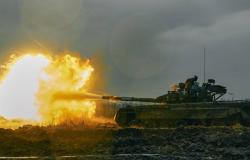L’Acled (Armed Conflict Location and Event Data Project), an American non-governmental organization, reports for example that in 2023 conflicts increased by 12% compared to 2022 and 40% compared to 2020, so much so that one in six people in the world today lives in a war zone. We are impressed, in the heart of very democratic Europe, by the normality with which we live with the arms race. Militarization infects imaginaries, language, political dialectics.
That this first stretch of the century was and still is “critic” many other facts from our recent past confirm this: from security crisis linked to the terrorist wave to the crisis of international stability marked by the wars of the United States in Afghanistan and Iraq; by the economic crisis that followed collapse of 2008 to the austerity policies that have caused poverty and inequality to skyrocket, up to the Covid-19 pandemic. And then again, more recently, globalization affected by the clash between West And Russia on Ukrainian soil, the resumption of the conflict in Gaza Stripwith the extension of a non-apparent but clear state of war between Iran and Israel, the information chaos with the proliferation of fake news and post-truth, the climate crisis and the radicalization between those who would like to accelerate reforms to avoid the effects of climate change and those who oppose superficiality and denial at the end of the world.
It is not surprising, then, that the historian Adam Tooze uses the word “polycrisis” to define our time or that the economist Nouriel Roubini speaks of mega-threats. We do not know how this era of ours will be described by the historians of tomorrow, but we know that the young generations, born in the last twenty years, are growing up in a state of unprecedented uncertainty, capable of creeping into different areas of life, in the folds of everyday life. marked by precarious jobs, by the hyperpervasive screens of a platform model society and by natural environments plundered without care.
Even the myth of the perpetual renewal of capitalism has been exhausted.
According to the sociologist and economist Wolfgang Streeck, capitalism in a state of advanced disintegration may eventually collapse «under the weight of the daily disasters produced by a social order in profound disorder.
Our democracy is the one paying the price, laboriously built in the name (and dream) of a progress in which rights and social justice were bound by an indissoluble bond, the foundation of every promise of individual emancipation and collective prosperity. The promise falters, democracy is under attack, poverty asserts itself with increasingly pervasive tones and impacts. AND politics?
Politics often invokes the excuse of not being able to intervene, of having its hands tied by globalization, by Europe, by the absence of alternatives (which it would instead be its task to build). Or they fabricate their own “consensus enterprise” by making people believe they have simple answers to complex problems in their pocket.
It is the citizens who remain alone, disoriented and disheartened.
This distrust, over time, can take the path of uncontrolled anger or apathy, and both feelings are harmful to democracy. Because as confidence in the future dries up, a need for order and protection arises. It then seduces the man alone in command, seduces the roots, the identities, a politics that denies change and rides the rhetoric of borders. A corroded, narcotized democracy, which, as they observe Nadia Urbinati And Gabriele Pedullà in the volume Afascist democracygives whoever wins the power to decide, control, monitor everything in the name of governability.
To escape the shadows of a present that feeds on fears it is necessary to examine other options, adopt unexpected perspectives, go off course. Without letting ourselves be overwhelmed by anxieties, on the contrary by relating to the future with political imagination, empathy, civic activation.
In the era of mega-threats, only by focusing on crises, deciphering their origins and their complexities, do we have the opportunity to find the key to getting out of the labyrinth and putting new paradigms, new proposals, new possibilities into circulation . Real.
It means crossing the wall that isolates us from the things of the here and now, and looking elsewhere, beyond our personal “zones of interest”, drawing on that pool of experiences, alternatives, practices, innovations, often unnoticed or left undetected , which can help us redesign a different horizon of common life.
Look at all this the new Season of the Giangiacomo Feltrinelli Foundationwhich we renamed “criticism” for two reasons. On the one hand we will go tothe heart of the crises that tangle the present, fueling the debate and comparing divergent positions. On the other hand – by returning to the word “crisis” that original meaning of “choice”, “analysis”, “judgment” – we will try to give ourselves the critical tools to find out the uncertainties opportunities for transformations. Which then means irrigating a certain idea of the world, a unprecedented project for the future, a community proposal.
To design with us this new Season which will feature national and international performers – such as Nikita Roy, Yu Hua, Angela Mauro, Gad Lerner, Goffredo Fofi just to name a few – they will contribute, among others, Nadia Urbinati, Marc Lazar, Emanuele Felice, Nicola Lagioia, Vera Gheno, Beppe Cottafavi, Carlo Boccadoro, Sandro Balducci, Giovanni Boccia Artieri.
Massimiliano Tarantino
Director of the Giangiacomo Feltrinelli Foundation
Tags: Critical Season Giangiacomo Feltrinelli Foundation




